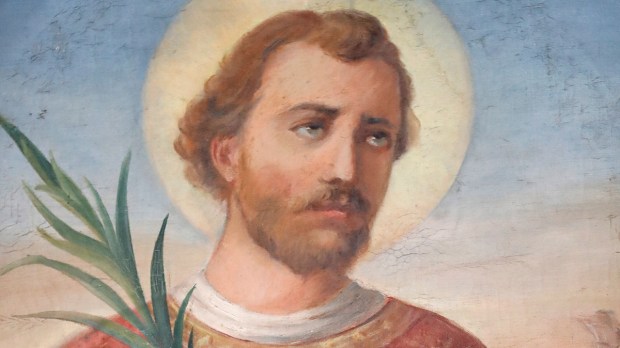February 14 has become one of the strangest days in Western culture. It is widely celebrated by the name of “Valentine’s Day,” referring to the Catholic saint, Valentine.
However, in the liturgy, most Roman Catholics don’t actually celebrate St. Valentine on February 14. The general calendar states that February 14 is the obligatory memorial of “Sts. Cyril and Methodius.”
While nearly the entire Western world celebrates “St. Valentine,” the Church directs our attention to a pair of obscure Slavic saints.
Why is that?
The search for the real St. Valentine
Historically speaking, February 14 has been associated with St. Valentine for centuries, dating back to some of the earliest calendars of the Catholic Church.
However, it was not a single St. Valentine, but multiple saints, as the early 20th-century American Ecclesiastical Review points out.
The various martyrologies of the Church contain twenty-two lives of canonized saints by the name of Valentine. Of these, nine are recorded as bishops, twelve as martyrs, most of the latter were priests; one was an officer in the army of Maximian and died at Ravenna. They are of all nationalities, Italians, French, Spaniards, Germans and Belgians.
Five of the St Valentines have their feasts assigned upon the 14th of February another occurs on February 12th.
Yet, none of these Valentines is the one who is connected to the modern celebration of Valentine’s Day.
That St. Valentine is a 3rd-century Roman priest who was martyred for his Christian faith. There exist a number of legends that surround this particular saint, one of them claiming that he secretly wed couples.
Removal from the Roman Calendar
Initially the Roman Church had no problem celebrating this and other Valentines on February 14 and kept his feast on that date until 1969.
In the Second Vatican Council document, Sacrosanctum Concilium, it was suggested that the liturgical year should be revised, and certain saints removed from the general calendar.
Lest the feasts of the saints should take precedence over the feasts which commemorate the very mysteries of salvation, many of them should be left to be celebrated by a particular Church or nation or family of religious; only those should be extended to the universal Church which commemorate saints who are truly of universal importance.
A study was conducted by the Church, and St. Paul VI later explained in his motu proprio, Mysterii Paschalis, why some saints were removed and different ones added.
In order to execute this decision of the Ecumenical Council, the names of some saints have been removed from the universal Calendar … The suppression of reference to a certain number of saints who are not universally known has permitted the insertion, within the Roman Calendar, of names of some martyrs of regions where the proclaiming of the Gospel arrived at a later date. Thus, as representatives of their countries, those who have won renown by the shedding of their blood for Christ orby their outstanding virtues enjoy the same dignity in this same catalogue.
While not martyrs, this does appear to be a reference to Sts. Cyril and Methodius, who proclaimed the Gospel to the Slavic people during the 9th century. The switch was an effort to make the calendar more “universal,” as St. Paul VI states in his letter.
Also, it is believed that since there was doubt as to which St. Valentine was celebrated on February 14, his name was subsequently removed.
Oddly enough, the document that authorized the changing of the calendar was dated February 14, 1969.
In truth, the general calendar is not something “fixed,” and can change as the needs of the times permit. Could St. Valentine be restored to February 14? If a large group of faithful desire it and believe him to be of “universal importance,” then yes, he might return to that date.



